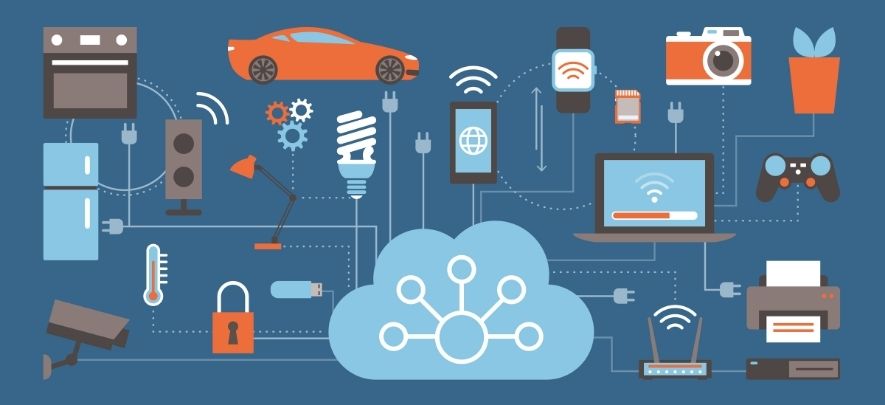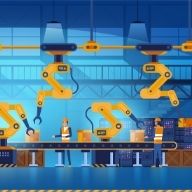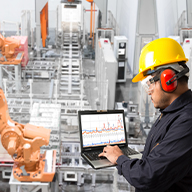The future of Internet of Things: 7 predictions about the IoT

Digital & Technology
237 week ago — 5 min read
What is Internet of Things?
An Internet of Things system consists of sensors that communicate with the cloud. Once the data received by the cloud, the Software processes it and decides to perform an action in taking control of devices that are connected without the need of the user.
Here are 7 predictions about the future of IoT.
1. Internet of Things by 2025
It is estimated that by 2025 there will be more than to 21 billion IoT devices. A quick look back shows the trend in IoT devices. According to IoT Analytics, in 2016, there were more than 4.7 billion things connected to the internet. It is predicted that by 2021 the market will increase to nearly 11.6 billion IoT devices.
2. Routers will become more secure to block unwanted access
The IOD (Internet of Data) makes your home smarter and more efficient when it safeguarded from cyber breaches. Your home devices like smart TV, security cameras, door locks are connected to the internet. They sure add convenience and comfort in your life but can also be a threat to the safety of your home. Hence the router will play a vital role by securing the entry point of the internet into your home. Even if your smart IoT device cannot be protected, the router will protect the entry point of the internet by password production, firewalls, and configure them to allow the safety of your network.
3. Artificial intelligence will continue to become a bigger thing
Smart home hubs, thermostats, lighting systems, and even coffee makers collect data on your habits and patterns of usage. When you set up voice-controlled devices, you allow them to record what you say to them and store those recordings in the cloud. In most cases, the data is collected to help facilitate what is called machine learning.
Machine learning is a type of artificial intelligence that helps computers “learn” without someone having to program them. The computers are programmed in a way that focuses on data that they receive. This new data can then enable the machine to ‘learn’ what your preferences are and fine-tune itself accordingly. For example, when a video website suggests a movie you might enjoy, it’s likely learned your likes based on your past selections.
Also read: Why Artificial Intelligence and IoT will revolutionise manufacturing and predictive maintenance
4. 5G: The Fuel that IoT needs
5G is central to the IoT or single network for billions of applications. In a decade, from 2020 to 2030, IoT devices will grow from 75 billion to more than 100 billion, and the improvement from 4G to 5G in terms to grow IOT is most significant. Today’s 4G network can support on a single cell up to 5500 to 6000 NB-IoT devices. With a 5G network, nearly one million devices can be handled by a single cell.
5. Cars will get even smarter
The arrival of 5G will shift the auto industry into a higher gear. The development of driverless cars - as well as the connected vehicles already on the road — will benefit from data moving faster.
In the current scenario, you might not view your car as an Internet of Things device. But new cars will increasingly analyse your data and connect with other IoT devices — including other high-tech vehicles on four wheels.
6. More cities will become ‘smart’
IoT devices will not be used by consumers alone. Cities and companies will also adopt smart technologies to save time and resources.
This will mean that cities will be able to automate, remotely manage, and collect data through things like visitor kiosks, video camera surveillance systems, bikes, taxis and rental stations.
Also read: Smart cities implementation – What needs to be done to realise the vision?
7. 5G’s arrival will also open the door to new privacy and security concerns
In times to come, more 5G IoT devices will connect directly to the 5G network than through a Wi-Fi router. This trend will make those devices more prone to direct attack. For home users, it will become harder to monitor all IoT devices, because they will forgo a central router.
On a larger scale, the higher dependence on cloud-based storage will give attackers new targets to try breaching.
Also read: 10 reasons why your business should adopt IoT
To explore business opportunities, link with me by clicking on the 'Connect' button on my eBiz Card.
Image source: shutterstock.com
Disclaimer: The views and opinions expressed in this article are those of the author and do not necessarily reflect the views, official policy or position of GlobalLinker.
View S Gangadhararao 's profile
Other articles written by S Gangadhararao Boppana
210 week ago
Importance of automation in industrial process
224 week ago
Most read this week
Trending
Ecommerce 26 Mar 2025













Comments
Share this content
Please login or Register to join the discussion